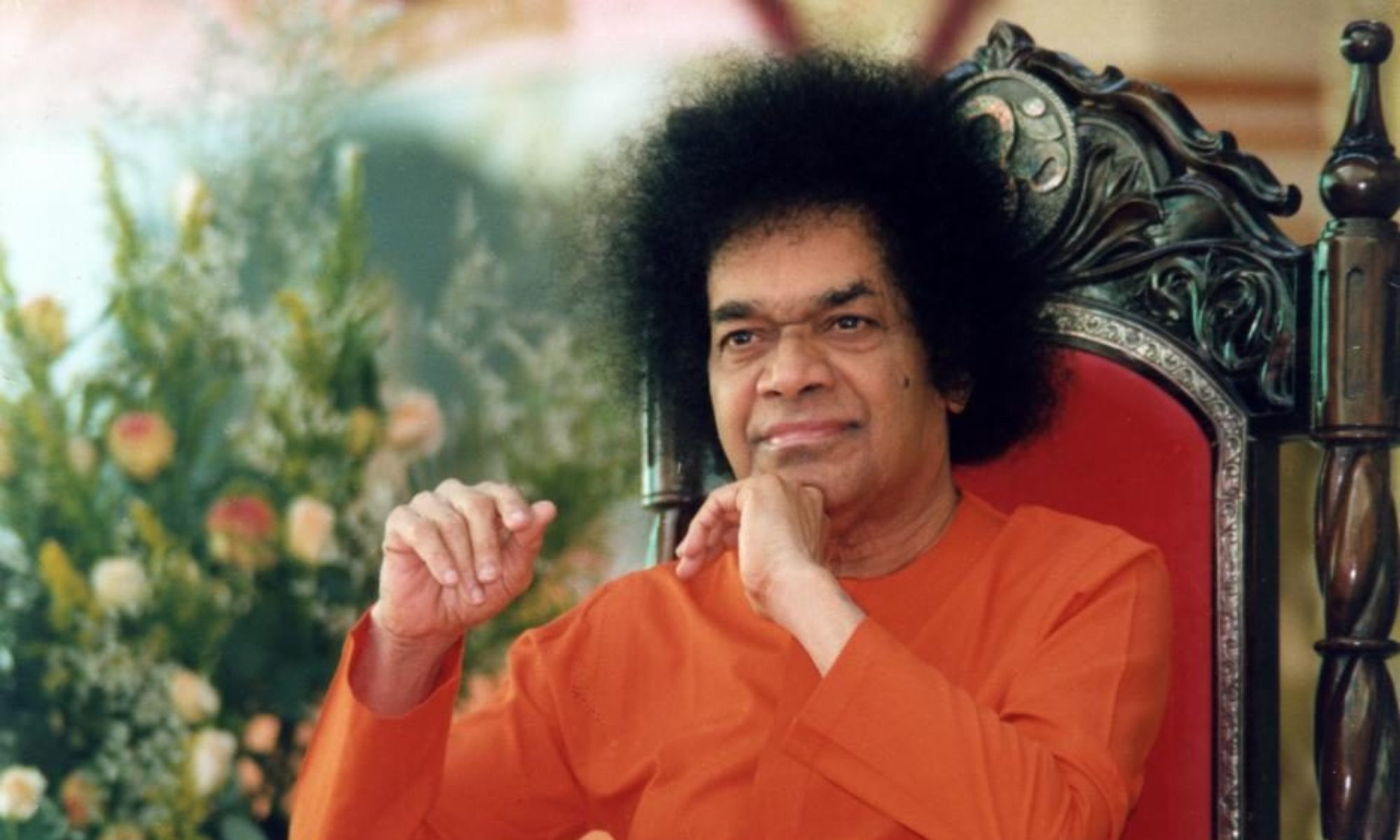In this edition
- Upcoming events
- Geetha Vahini
- Discourses on Navarathri / Dussehra
- Selfishness will never work in matters relating to GOD
- Devotional activities in Chicago and suburbs
Upcoming Events
- Sunday October 06, 2019 Special Devotional Program Celebrating Vijaya Dashami (Dussehra)
- Time: 09:30 AM – 12:30 PM
- Venue: River Forest Community Center
- Saturday October 19, 2019 Regional Healthcare Retreat “Heal the Healer”
- Registration Details: https://hth.sathyasaicenters.org/
- Targeted to healthcare profession
- Time: 09:30 AM – 04:00 PM
- Venue: Sant Nirankari 1S750 IL-59, West Chicago, IL
- Sunday October 20, 2019 Special Panel Discussion, celebrating Avathar declaration day
- Regular center activities and special panel discussion; Bhajan starts at 10:30 AM
- Time: 09:30 AM – 12:30 PM
- Venue: River Forest Community Center
Geetha Vahini
“Arjuna! Pay attention to just one fact! How warm is your body now? It may be about 98 degrees. How did it happen? Because, the Sun bears many million times this heat at that distance, is it not? Now if the Sun feels that it will not put up with all that fire and becomes cool, what will happen to mankind? Again, if I desist from karma, this vast Viswa Karma of working in and through this Universe, imagine what will be the fate? That is why I am engaged in karma, remember. Not that I derive any profit thereby, or get any good, or any fruit.
“Almost everyone in the world is bound by the rule of karma. But people are so immersed in ignorance that they are unaware of their own moral or intellectual status and of the secrets of karma. Such can be saved only by being inspired by the example of the great. That is why the Jnani has to be engaged in activity. He has to remove the sloth and delusion of ordinary men. So all have to obey the rule of karma, without any deviation.”
Does the airplane stay on above, denouncing the earth below? Those who have earned the right to travel in it cannot fly towards it and into it! Therefore, to take them in it has to come down at the places where they gather by previous arrangement, and then soar high into the sky with them. So too, though the Jnani has no desire or urge to do karma, he comes down into the region of karma and helps those who would not have otherwise put their talents into proper use. Even great personages like Janaka performed Dharmakarmas with this view. Aswapathi too did likewise, to save the rest from sheer idleness or wickedness.
Then, in reply to another question of Arjuna, Krishna said, “Kama (desire) is the root cause of all evil” and He elaborated on its nature, cause and cure. “He who is bound by the Deha-atma-buddhi (the false idea that he is just this body and nothing more) can never hope to conquer karma. One must acquire the Brahma-atma-buddhi (the awareness that he is just Brahman and nothing less) in order to be sure of victory. All acts must be performed in the spirit of dedication to the Lord.
In this chapter, three important subjects have been clarified: (1) everyone has to do karma for if this is not done, the world will come to naught. (2) The karma of the great is the ideal that the rest have to keep in view. (3) Almost all in the world are bound by the obligation of karma.
Krishna most graciously made Arjuna imbibe these lessons. Not satisfied with this, Krishna told him that Jnana is the final goal and gain of karma. Jnana is the treasure that is won by man’s efforts to purify the mind, and to earn the Grace of God. Jnana not merely grants Ananda but is itself the seat of Ananda. Thus, He initiated him into Jnana Marga, the path of Jnana.
This subject is carried on till the fifth Chapter. Jnana Yoga shines as a precious jewel amidst the Teachings of Bhagavad Geetha Sastra. Krishna declared “Nahi Jnanena sadrisam pavithramiha vidyathe” (nothing as holy as Jnana is known here)! Even later, in the 7th chapter, He has said, “Jnani thwathmaivame matham” (I consider the Jnani as Myself) the excellence of Jnana Yoga has been similarly extolled in many other contexts also in the Geetha.
That is why Jnana Yoga is believed to be the most fruitful of all spiritual sadhanas. All Sastras find their fulfilment in Jnana alone. Dhyanam (meditation) is just the contemplation of the Jnana Swaroopa, which is one’s real nature. All are in you, you are in all. You have to get this conviction fixed in your consciousness, by means of analysis, discrimination and intellectual exploration. You have to isolate and dismiss from the consciousness the impressions of the senses, the mind, the intelligence, etc. These have nothing to do with the Atma, which you really are. The Atma is unaffected by any subject or object. Even if the senses, mind, intelligence, etc. are inactive, that inactivity will not affect the Atma! To know the Atma as such an entity, unaffected and unattached, is the secret of Jnana.
-Excerpts from Geetha Vahini
Discourses on Navarathri / Dussehra
Indians (Bharatiyas) have been celebrating the Navarathri festival from ancient times as a mode of worship of Devi, the Divine as mother. They worship Durga, Lakshmi, and Saraswati during those nine days. Who are these three? Their esoteric significance is represented by three potencies (sakthis): karma, devotion (upaasana) and spiritual wisdom (jnana).
The significance of Durga, Lakshmi, and Saraswati has to be rightly understood. The three represent three kinds of potencies in man: will power (ichchaa sakthi), the power of purposeful action (kriya sakthi), and the power of discernment (jnaana sakthi).
Saraswati is manifest in man as the power of speech (vaak). Durga is present in the form of dynamism. Lakshmi is manifest in the form of will power. The body indicates purposeful action (kriya shakthi). The mind is the repository of will power (ichchaa shakthi). The Atma is the power of discernment (jnaana shakthi). Purposeful action comes from the body, which is material. The power that activates the inert body and makes it vibrant is will power. The power that induces the vibrations of will power is the power of discernment (jnaana shakthi), which causes radiation of energy. These three potencies are represented by the mantra, Om Bhur Bhuvah Suvaha. Bhur represents the earth (bhuloka). Bhuvah represents the life force, conscience in man. Suvaha represents the power of radiation. All three are present in man. Thus, Durga, Lakshmi, and Saraswati dwell in the human heart.
The term Devi represents the divine power that has taken the passionate (raajasic) form to suppress the forces of evil and protect the serene (satvic) qualities. When the forces of injustice, immorality, and untruth have grown to monstrous proportions and are indulging in a death-dance, when men have lost all sense of kindness and compassion, the Atmic principle assumes the form of Sakthi, takes on the passionate (rajasic) quality, and seeks to destroy the evil elements. This is the inner meaning of the Dasara festival.
When the divine Goddess is in dreadful rage to destroy the wicked elements, she assumes a fearful form. To pacify the dreaded Goddess, her feminine children offer worship to Her with sacred red powder (kumkum). Seeing the blood-red kumkum at her feet, the Goddess feels assured that the wicked have been vanquished and assumes her benign form. The inner meaning of the worship of Devi with red kumkum is that thereby the Goddess is appeased.
During the ten days of the Dasara, the demons (rakshasas), in the form of wicked qualities, have been routed. The bad qualities in men are the demons. Arrogance is a demon. Bad thoughts are demons. Ravana is depicted as the king of Rakshasas. He is said to have ten heads, but he was not born with ten heads. Who is this Ravana, and what are his ten heads? Lust (kama), anger (krodha), delusion (moha), greed (lobha), pride (mada), envy (maatsarya), the mind (manas), intellect (buddhi), will (chitta),and ego (ahamkara) –these constitute the ten heads. Ravana is one who has these ten qualities.
Each one can decide for himself whether he is a Ravana or a Rama, according to his qualities. Rama is the destroyer of bad qualities. When engaged in this act of destruction of bad qualities, He manifests His passionate quality (raajo-guna). But His passionate quality is associated with His serene (saatvic) quality. Even in cutting off Ravana’s ten heads, Rama showed His love. This was the only way Ravana could be redeemed.
When the Lord metes out a punishment, it may appear harsh. But what appears externally as passionate (rajasic) is in reality serene (satwic). In a hailstorm, along with rain there will be hailstones. But both the rain and hailstones contain water. Likewise, there is serene quality even in the Lord’s passionate actions. The Lord deals with serene persons in a serene way. He applies the passionate weapon against passionate persons.
–Baba’s Divine Discourses
Selfishness will never work in matters relating to GOD
There is a small story in the Mahabharata. With a view to get Krishna on her side, Satyabhama, one of his consorts, requested Narada to tell her some way, by which she can achieve her objective. Narada knew that Satyabhama was very selfish and that selfishness will never work in matters relating to God.
Narada wanted to teach a lesson to Satyabhama and said he knew of a ritual in which she gives away her husband as a gift to someone and then buys him back by paying money, equivalent in weight to the weight of the Lord. Narada said that Krishna will belong solely to Satyabhama under all circumstances if she went through this ritual. In one pan of the balance, she made Krishna sit and she put all her jewels in the other pan but it was no match to the weight of Krishna. Narada told Satyabhama that since she is not able to give gold needed to equal her husband’s weight, Krishna would not belong to her; He would belong to him.
Satyabhama thought of Rukmini where she found her performing Tulasi puja. She was astonished to find that Satyabhama was trying to outweigh the Lord himself with gold which would never be possible. She said that gold will never outweigh God and only God’s Name can match Him in weight. Narada did not agree with this and asked that since Krishna has a form which can be seen, He must be weighed against something which can also be seen. Rukmini immediately grasped the situation and she told herself that whether it is fruit, a flower, or a leaf or even a spoon of water, if given in full faith, God will surely respond. If there is any truth in this, she expected Krishna to respond to what she was going to do and in full faith, she placed a Tulasi leaf in the other pan of the balance, uttering the name of Krishna. It is only with affection, love and pure heart that one can get God. She won.
Devotional Activities in Chicago and Suburbs
- Every Monday
- Bhajans in Aurora Shirdi Mandir from 07:00 PM – 08:00 PM
- Every Wednesday
- Bhajans in Hoffman Estates from 07:30 PM – 08:30 PM
- Every Friday
- Bhajans in Oak Brook from 08:00 PM – 09:00 PM
- First Saturday of the month
- Bhajans in Glenview from 10:30 AM – 11:30 AM
- Saturday October 19, 2019
- Paduka Puja in Bolingbrook from 10:30 AM – 12:30 PM
- Friday October 23, 2019
- Bhajans in Bolingbrook from 07:30 PM – 08:30 PM

